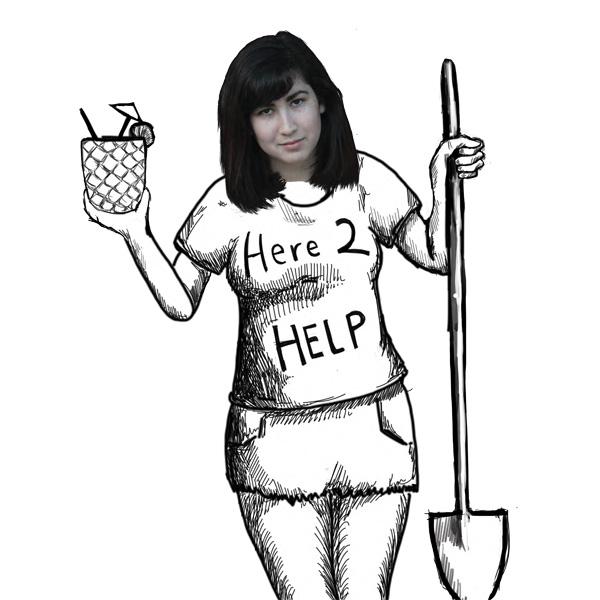Welcome to Palo Alto High School, where our students regularly discover and eradicate fatal illnesses, single-handedly dig wells that service several small African countries and create multi-million-dollar non-profit organizations to provide iPhones for malnourished children — for every one you buy, little Tommy gets his own! And who needs clean water when you’ve got Temple Run? Did you know that the United States decided not to take military action in Syria solely because Paly students changed their profile pictures to peace signs in a show of support?
These students are great — don’t get me wrong — but they often forget that real issues exist in our own backyard.
Foreign community service programs are an option that many Paly students choose to take advantage of to fulfill either college requirements or personally felt obligations. However, the colonialist attitude, “We are white and we’re here to help,” that sometimes accompanies upper-middle class students when they drop into a country for a month and expect to affect major change — or turn into Mother Theresa — takes away the potential community service has to truly and positively impact a community.
Another negative aspect of these service projects comes through in a place dangerously inhabited by cliches and “important life lessons”: college application essays. These essays expose a common egocentric attitude that community service is essential beyond all else for personal growth.
Separate from the potential for condescending attitudes, shorter service projects make less logistical sense. Local service provides an opportunity for volunteers to do sustained service with a community they are either part of or familiar with. Volunteering at an after-school program or sorting cans at a food bank may seem less glamorous than painting condos in Barbados, but these activities have the potential to be much more impactful for the served community.

In fact, “service to others” is one of the 41 Developmental Assets that the Palo Alto Unified School District and other Palo Alto organizations use to help children aged 12-18 “grow up healthy, caring and responsible.” The initiative states the importance of young people serving their community one or more hours a week. Service should be a steady feature in adolescents’ lives and flying to Kenya once a week might present some difficulties.
Besides the developmental importance of community service, what kind of service you choose to do and how you address it, might impact your college applications. Traditionally, summer trips to foreign countries have been viewed as viable options for students to demonstrate their commitment to service, while having ample amounts of fun with their American counterparts. However, in today’s climate of increasingly selective college admissions, admissions officers are suggesting more and more frequently that they put a lower value on these service trips, favoring more local extended service instead.
Rick Clark, an admissions officer at the Georgia Institute of Technology, was on an episode of NPR’s This American Life about college admissions in September, and spoke about what he called the overused “mission trip essay.”
“And [it’s] great to go on the mission trip and have a cultural experience but inevitably the way it reads is so predictable,” Clark said, “‘Over the course of my time there, I went expecting to help others, but in fact it was me who was changed.’ And even just when you first start reading that you’re like, ‘Ugh, here it comes again.’”
Legitimate admissions concerns are consistently magnified and sensationalized on the Internet — and there’s no difference when it comes to community service. College Confidential users regularly post horror stories about their rejections from Stanford, Princeton and Georgetown, an obvious result of the admission board’s failed recognition of their one week service trip to CostaGuataMexiRico to make piña coladas for destitute orphans.
So, next time you pull out your parents’ credit card to book a $5,000 trip to build sand castles for homeless people halfway across the world, think twice. Look outside your window and realize: We have lots of work to do right here at home.


